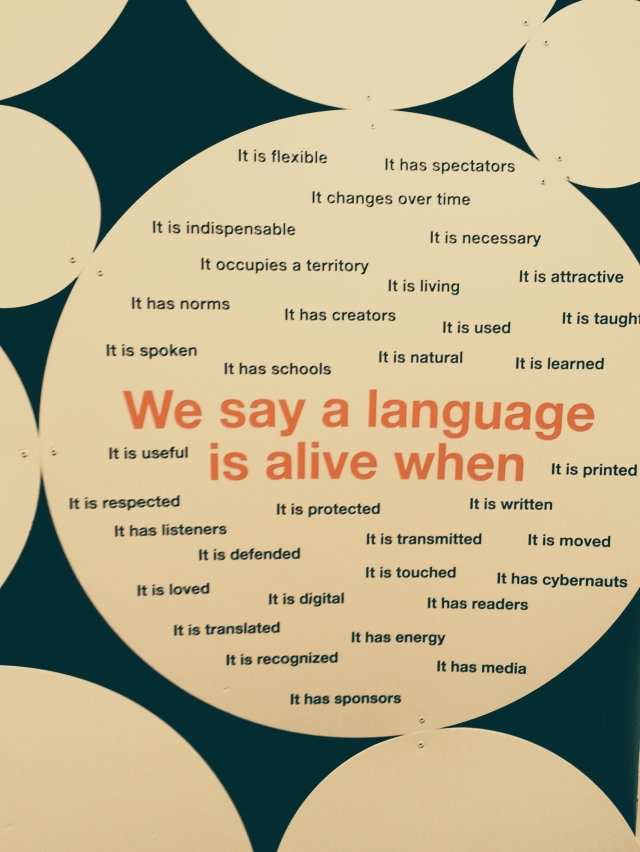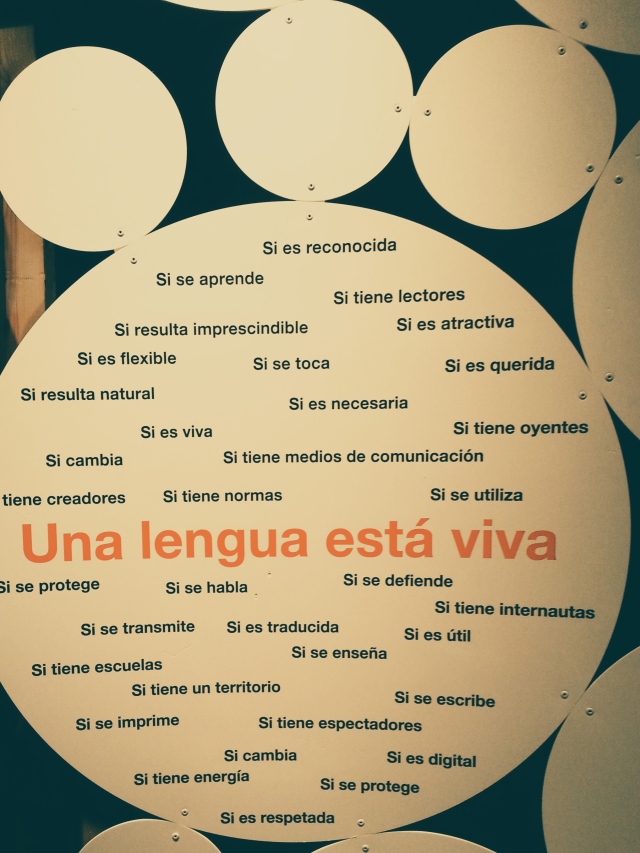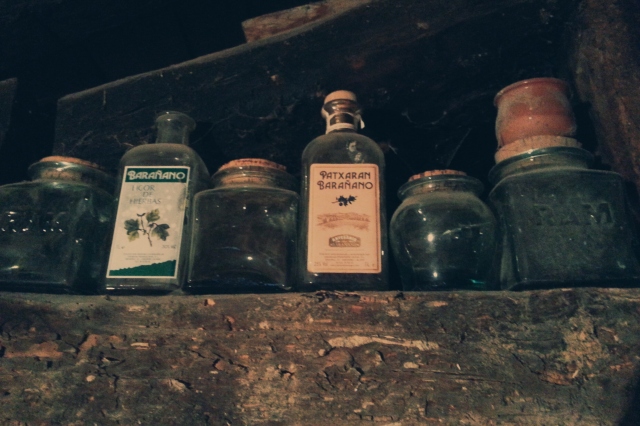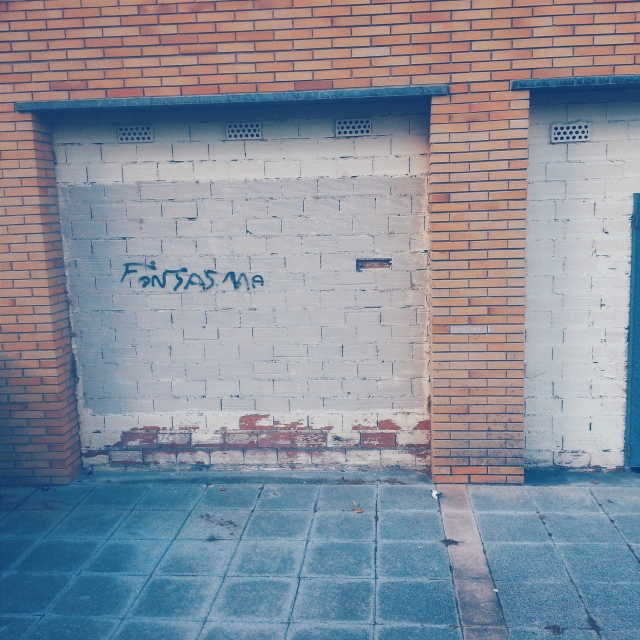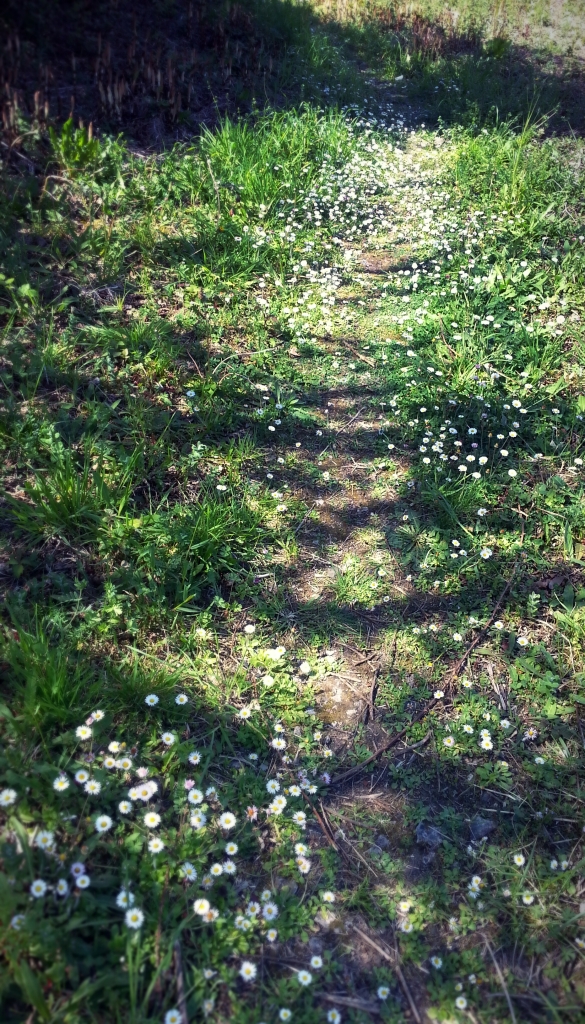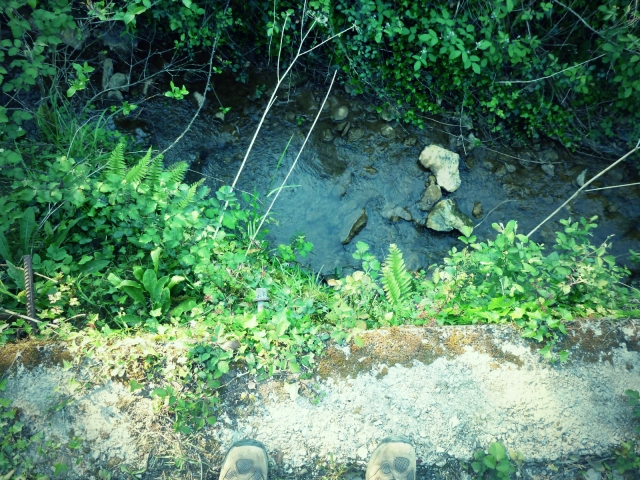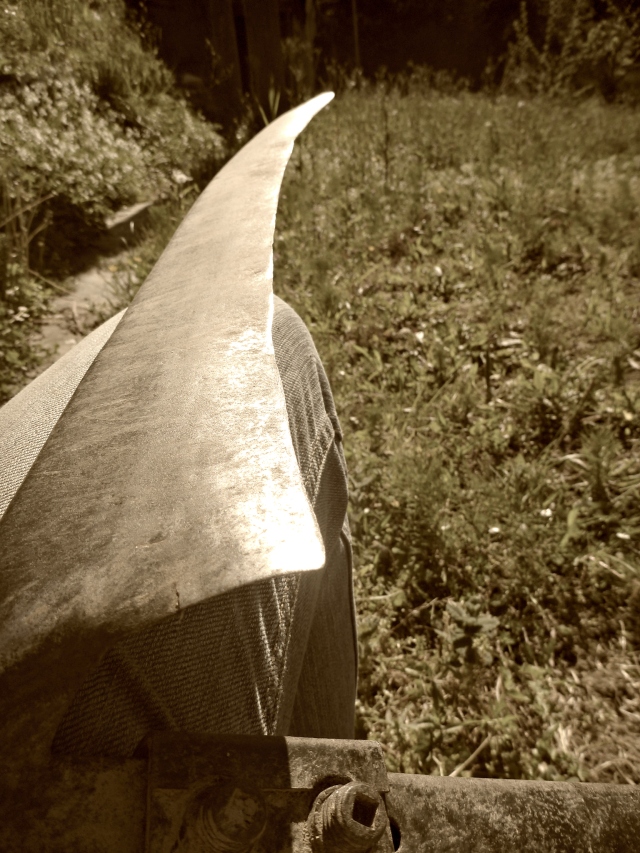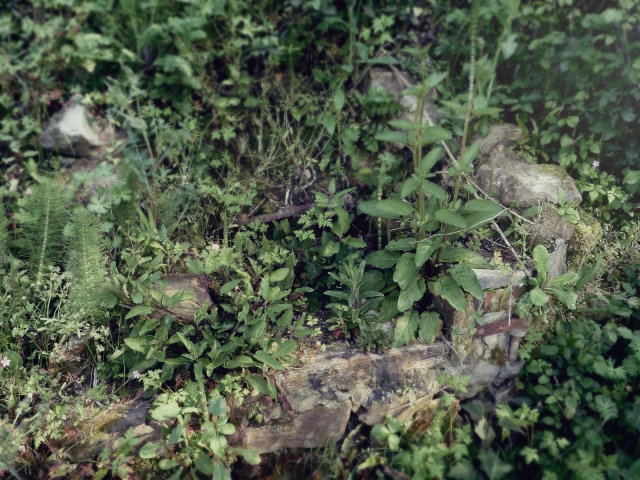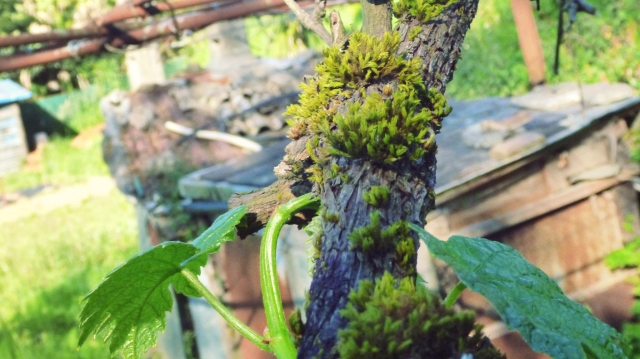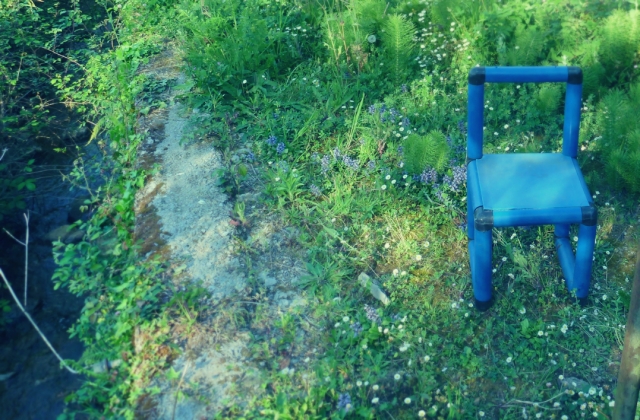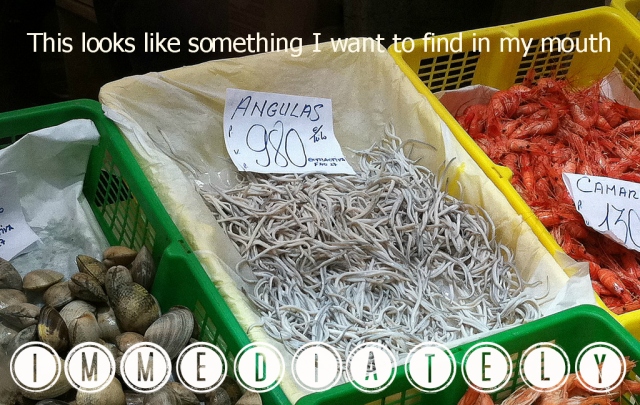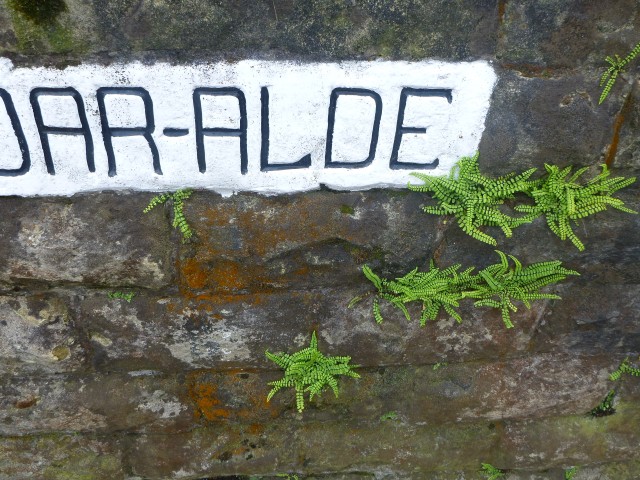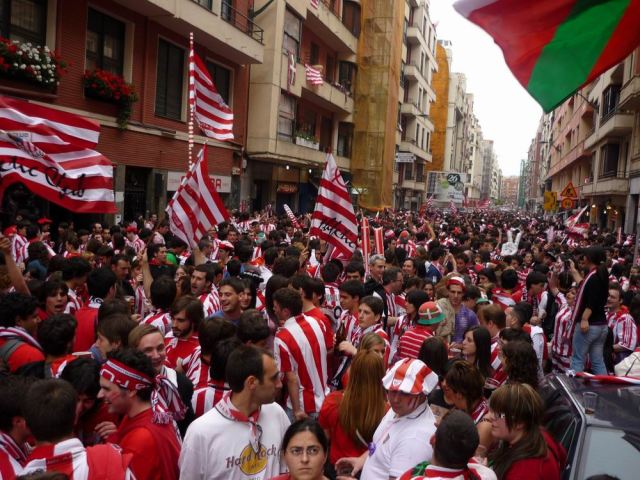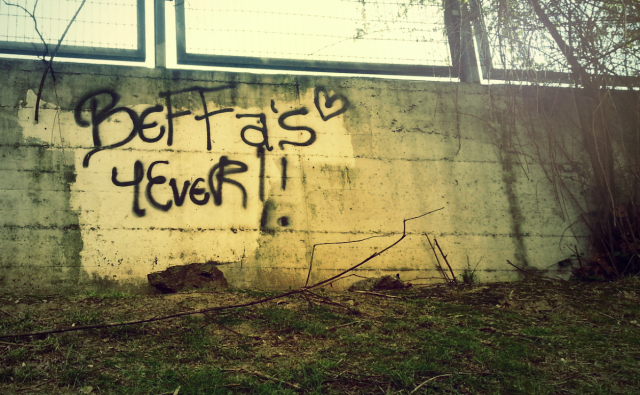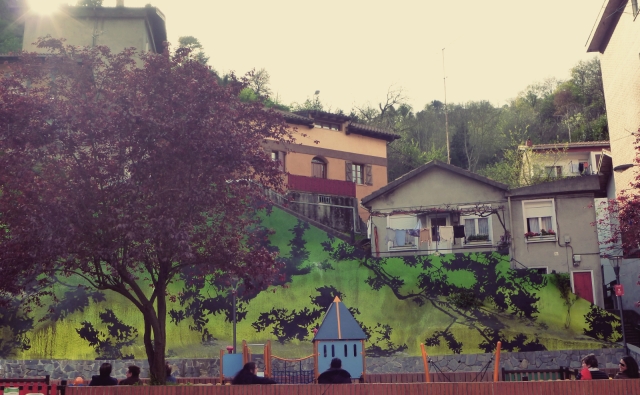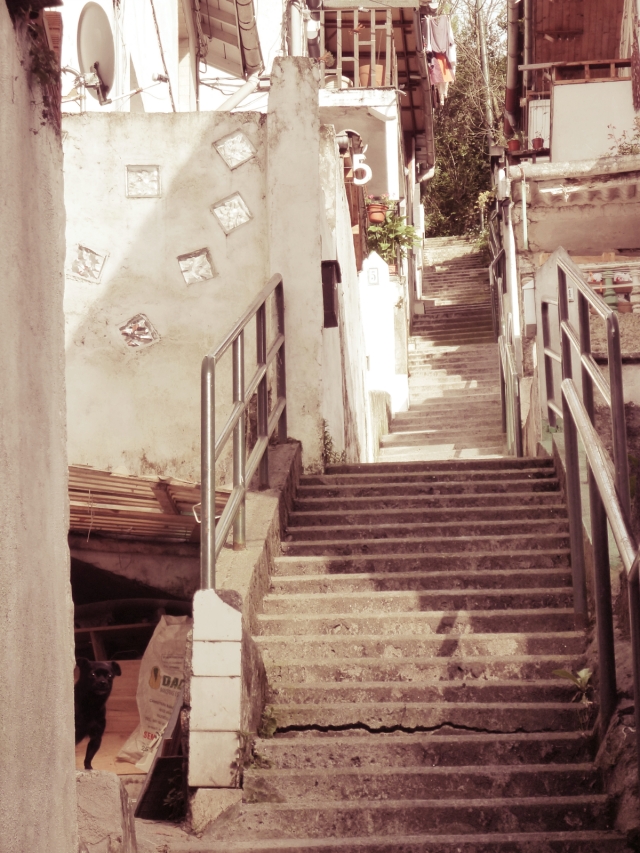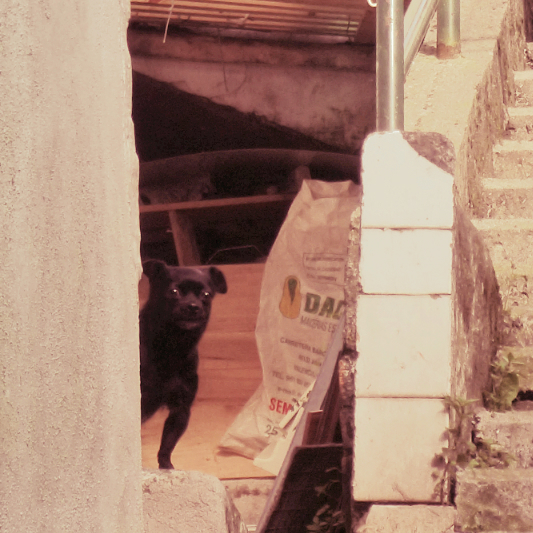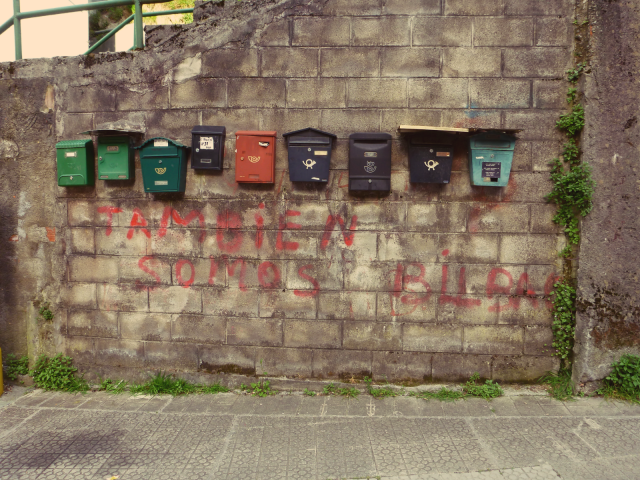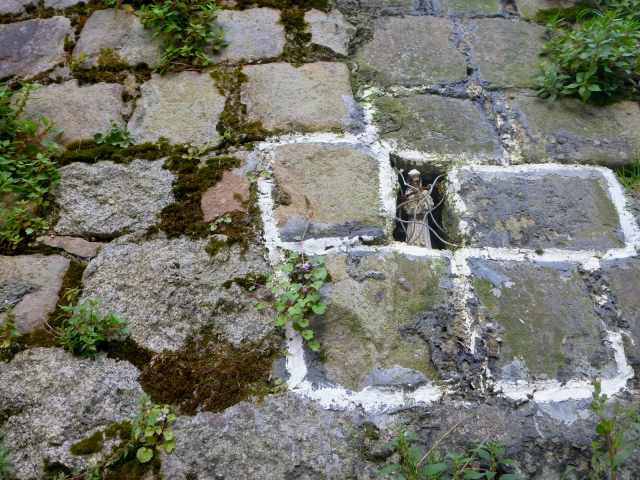Part 2: But Seriously Y’all
What I don’t yet know and still want to believe…
That is, about the Basque Story. The Basque Conundrum. The Basque Conflict. The Basque Saga. The Basque History. The Basque Herstory. The Basque Problem. The Basque Solution. The Basque Enigma.
If Euskadi won it’s independence and became a sovereign nation, the people here would tear each other to pieces.
Without a common foe, its internal divisions would be exponentially amplified. No longer in the shadow of Spain or France, the once external demarcations of ‘us and them’ would implode and once symbiotic alliances would turn inward upon themselves. A mutual enemy,‘them,’ would have to be refashioned from those who were once some of ‘us’. Gone would be the diversity of values and stances, the very checks and balances that democracy depends upon.
There. I said it and I got it out of the way.
This is a fact that I don’t yet know but still want to believe.
In Part 1 of this series, my final meditation wondered about our divergent understandings of courtesy. In this context, I tend towards having mucha cara, ‘a lot of face’ and not letting on enough of what passes through the mind behind it.
I had to get that out of the way, The Mutual Enemy Problem, because it takes a conscious, concerted effort to emulate my new neighbors and just g’on ahead and let it tumble out. I also closed Part 1 alluding to my perspectives, this being the first of a few I’ll look at in this post (and in Part 3 to follow), regarding some serious subjects that could really piss people off.
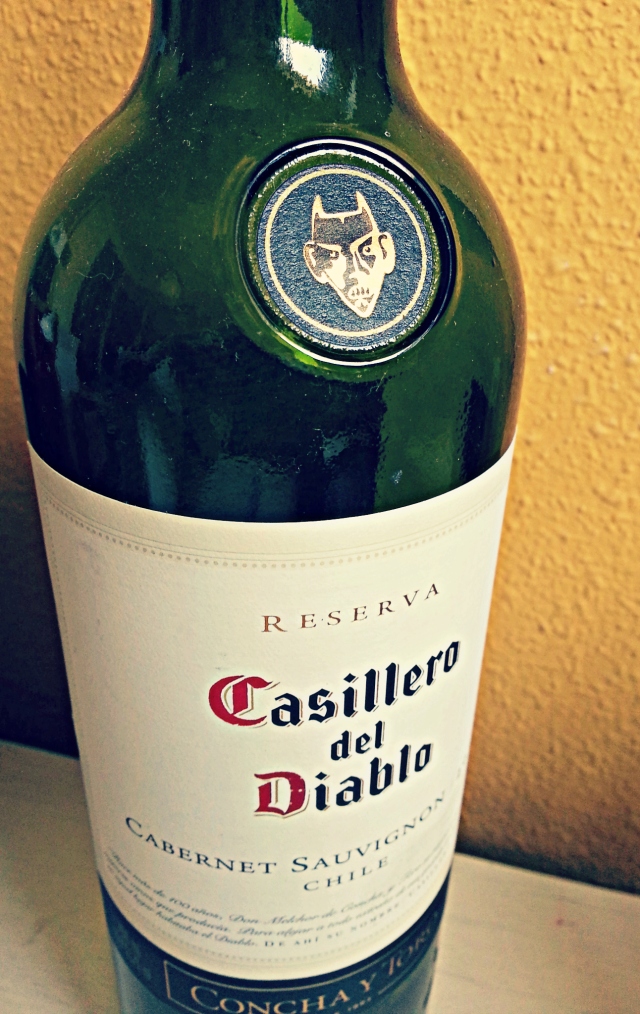
If it weren’t for all this deep red libation, high on quality and low on price… sharing the cup makes playing the devil’s advocate a bit easier, no lie. (Full disclosure: this is actually killer Chilean wine from some killer Chilean pals)
Correctness in Offending Political Senses of Humor
Before I go any further, I must clarify how I “Basque in the Reflected Glory” of all this tendency toward critique.
The title of this blog hit me one morning, after weeks of worrying about being too serious and being taken too seriously (or not seriously enough… merrily we go along, go along…. It hit me that if I was worrying about taking myself (and my writing) too seriously then the terrorists had already won.
This America!n’t happen, this America!na won’t let it. So, America!
“Basque-ing in the Reflected Glory” came out of observing the people, institutions and media of Euskadi, in daily self-reflection, raise clenched fists of success proclaiming:
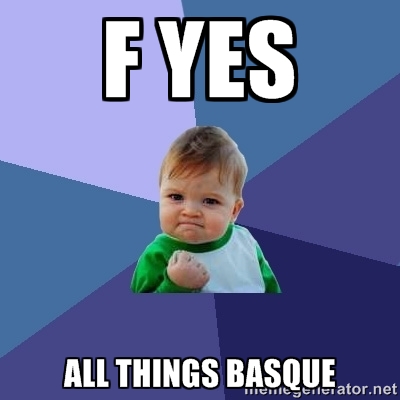
And man, I couldn’t blame them. I still can’t. Surrounded by all this glory, I could just sit back and soak in all the reflected light of Grade-A, Top-Shelf Awesomeness that I get to be a part of. And then, there’s the innumerable times when I’m belly laughing alone because the hyperbole and hype is just so absurd while simultaneously so warranted, and oh so recognizable…

Greatness superimposed on Greatness, like when all the Power Rangers’ battle vehicles would combine to form the ultimate fighter bot.
That ditty by Queen is playing in my head, you’d know it even if I wrote the last word of the title in Euskera (remember that the “tx” combo is pronounced like “ch”): “We Are The Txapeldunak”. Consider these lines in particular…
And bad mistakes
I’ve made a few.
I’ve had my share of sand kicked in my face
But I’ve come through.
I don’t yet know how to best give this situation the alternative view it deserves. Going along giggling, but only over the matters most trite sure wouldn’t be fair nor sane. The atrocities of Basque story bounce back at the same light-speed as any reflection of glory. The visage of ache and anxiety, humiliation, distress, and betrayal can still look at itself in the mirror and practice the jokes it’ll tell later.
The stand-up comedian, has an interesting position in a particular culture’s spectrum of the arts. Generally speaking, a creator who works in fiction, has a buffer against committing scandals of offensiveness that the comic does not. Their jokes we usually see as a more unfiltered extension of the humorist. We can forgive the author of fiction if they’ve humorously conveyed something too brutal to say live on-stage because they’ve set it back into an imagined frame of an imagined mind.
I’m no comedian. However, I still want to believe that my writing here can be: sufficiently serious in the pursuit of comprehension to risk offending people; respectful enough to swear off radical political correctness; loose and limber enough risk a slap on the hand to get that slap on the knee. A few hits on the tongue-in-cheek target are worth the chance of a miss that, in bad taste, bites down hard.
To Know Thyself is to Know Thine Enemy
So, to revisit the opening poke-in-the-eye polemic, I know I’m not crazy to still want to believe that an EuskalHotMessería would likely be the immediate (but not necessarily permanent) result of independentzia for Euskalherria. I’ll go as far as saying that they’d have a harder time, at least in the first decade or beyond, between themselves than they do between them and their respective Nation-States. With a shallower pool of Us and Them to choose from, we become our own enemy. Euskadi is presently particularly united, but since before the Carlist Wars and up to contemporary voting trends, a Basque consensus is an oxymoron. I would expect to see a sharpening of the already exaggerated divisions between provinces within the Basque Autonomous Community, not to mention the inevitable emergence of rifts between those who cannot or refuse to dissolve their cultural ties to Spain and France.
What I don’t yet know in particular and what leads me to suggest that this would be the case is that:
- Don’t nobody know what the economic ramifications would be for the region while Spain and France are still very much feeling (even if not officially registering/calculating) the economic crisis
- Don’t nobody know if a newly sovereign Basque Country could independently manage and maintain the their public sector and infrastructure.
- Don’t nobody know how trade and relations with Spain and France would be managed and maintained or if Spain and France would impose unofficial sanctions against a new Basque Country (or vice versa). ~and the one I really scratch my head about… as I imagine many would if questioned on the matter~
- Don’t nobody know how a rupture would affect these teams’ membership in the Spanish football league. And that, my friends, is a diplomatic emergency if I’ve ever known one.

You think the US has a problem with dependence on foreign oil? You have no idea. You can’t produce this golden elixir in Euskadi. Or oranges. Or almonds. Or even much wheat. All that comes up from the ‘EhSpain’ (that being the average Spanish-native’s English pronunciation of their country)
photo credit: 96dpi via photopin cc
These are most certainly questions to revisit. For the observer and denizen alike, the rest of 2014 will pan out as an interesting year in matters of statecraft in Europe. In Spain, the Community of Cataluyna plans to present the Catalan public with a ballot referendum this coming November 9th, an electoral survey of sorts, that could determine how much voter support there is for an ever quickening march towards self-determination. I haven’t been following the UK case as closely but it too implies a larger trend; Scotland will vote on a nearly identical measure this coming September 18th.
To be clear, I’m not saying that the Basque Country, Cataluyna or Scotland should or should not break off to form their own independent countries. I don’t yet know that it is necessary to come to any conclusions right now. I still want to believe that in politics, you’re damned if you do and damned if you don’t – I don’t care if you’re trying to revive a coalition, respawn a movement or level-up your democracy on this continent, that one, or on the largest moon of Saturn.
My underdeveloped view on the matter is that I don’t yet know what to expect. I simply don’t hear enough about how said accomplishment would be handled once on the other side, once these ‘nations’ become ‘states’. I tend to see an immense amount of energy going towards making the shift happen, but I still want to believe that these cohorts have invested considerable planning for most foreseeable geo-political consequences.

By Scot! What these movements and their detractors (not to mention the undecided) symbolize is a new way of thought in governance and international relations. In store are shifts in organization, macro- and micro- politics/diplomacy/economics… alas, a later post on these matters would be most prudent.
photo credit: mikemac29 via photopin cc
If You Can’t Keep It All Straight, Just Think Octopus
Put all that aside for now. I suggest stowing it in brain’s back pocket, a spot out-of-sight but still handy. Visualize doing so, as we’re about the expand the metaphor.
Imagine a political debate or conflict currently unfolding in your geographic or psychic vicinity. An issue being one that your personal stake in the outcome is moderate to minimal and yet the matter evokes in you both an intellectual interest and emotional ambiguity. As much as I’d like to, I can’t offer any examples because different strokes for different folks.
So you go to bed, laying there thinking about the issue you just imagined, running through a Rolodex of points and counterpoints, pros and cons of the issue. You doze off with these thoughts bouncing around as your noggin goes to work cleaning up synapses after a productive day.
Next morning, you wake up, and you’re an octopus.
You’re just fine out of water for some reason, but you’re definitely an octopus. Thing is, you wake up still only knowing how to move like a human and now you got all these extra appendages and a hundred new ways to stick to things and your brain stem fits the body of another creature and you go on with trying to live your life and think about extremist views without losing track of your extremities and continue to publish neat stuff that makes sense but you got ink spilling out all over the place and it seems really sensible then to change colors to match the seafloor and and then it’s like screw all y’alls, I’m hiding under this rock.
Taking Things Seriously
Just as I don’t yet know how to handle all these tentacles, I can never decide, if I ought to make political statements or not. There’s a couple reasons for this.
Politics is an inherently uncomfortable discipline; some of the greatest thinkers stayed away from it altogether while others who barely think of much at all get wasted on apathy for good reason and none whatsoever.
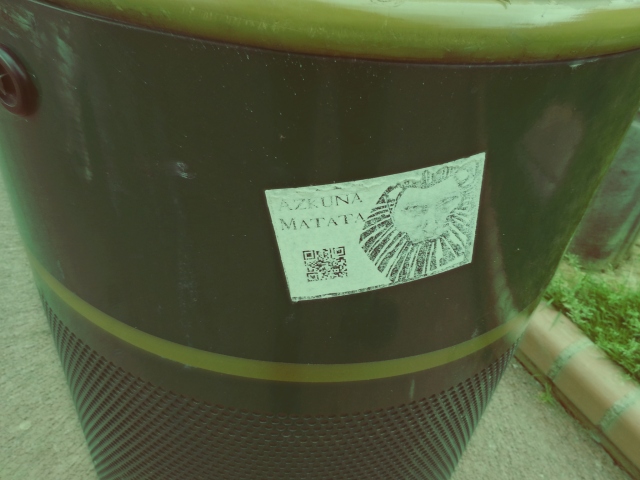
Righteous fire, outrage and immediacy fading like a sticker that once said… something important… Azkuna Matata… it means don’t worry for the rest of your days…
And then, oh the vanity! A good chunk of us want to look good, look smart, look informed, look like we’re holding all the disparate pieces together. We want to look like we have all the answers while trying to look like we’re not even looking for them. We’re stirring the pot of shit and acting like it don’t stink. Vanity manages the reputations; she works filtering the scraggly, loose, hairy and unbecoming bits; she slaves away at curating the second self showcase on all that masses communique.
Political statements make me squirm, for I tire of these things so quickly when they fail to jump or slide or fly. And then suddenly they do jump and slide and fly, as you drink a cup of coffee in front of the building where a lawyer was arrested for dubious reasons less than 24 hours before; as your boyfriend’s aunt grieves her cousins and uncles behind bars for crimes of ‘politics’; as your Euskera teacher is fired because they were involved in the cause; as that degree they earned in prison got them in front of the class.
Politics for the outsider – the expat, the immigrant – is a slow mediation. For me, a closing in magnification leads to identification; that’s how we come to personal conclusions by reason and necessary emotional involvement; pant-staining residues of what a place makes of us.
I don’t yet know what I have the right to protest. I still want to believe that anybody who shows up to a march engages in a little bit of voyeurism. Frankly, I only agree with some of their discontentment and all of their mobilization. I go for the private bodies and public speech filling a common space, the private property stacked tall and elbows cramped. I still want to believe that my permission slip is being alive, and that agreeing with some but never all their demands is plenty.
Part of me wonders, not yet knowing: what opinions do I have a right to here, given that I’ve splashed into the depths of a day-to-day elsewhere and slithered away from the bubbling crockpot of scorching red-white-&-blue vitriol – it leaves the taste buds blistered with a suction grip. And still, the emotional distance and physical closeness of involving myself in these Iberian issues makes it much easier to portray with sound, symbol and presence my support for stances whose entirety and implications I don’t yet know.
I’m not a political scientist and I don’t profess to be. Nevertheless, I still want to believe that I must interact with a political world, one in which the borders drawn and imagine, could appear or disappear as early as next year.
In Part 3 to follow, I’ll BIRG and bitch a little more about the political as personal and the need to interact with these goings-on. Because I still want to believe that as a woman, I must address the discomfort + disorientation as well as delight that comes with navigating the quasi-matriarchy of Basque society.
To be confused… to be contained… to be continued…
(Source of the W. Blake quote – besides the obvious coiner Blake himself – is Paddy Woodworth’s ‘Acknowledgments’ in his book, The Basque Country: A Cultural History. Goooooooooood stuff. I’ll surely be quoting him often in the future.
